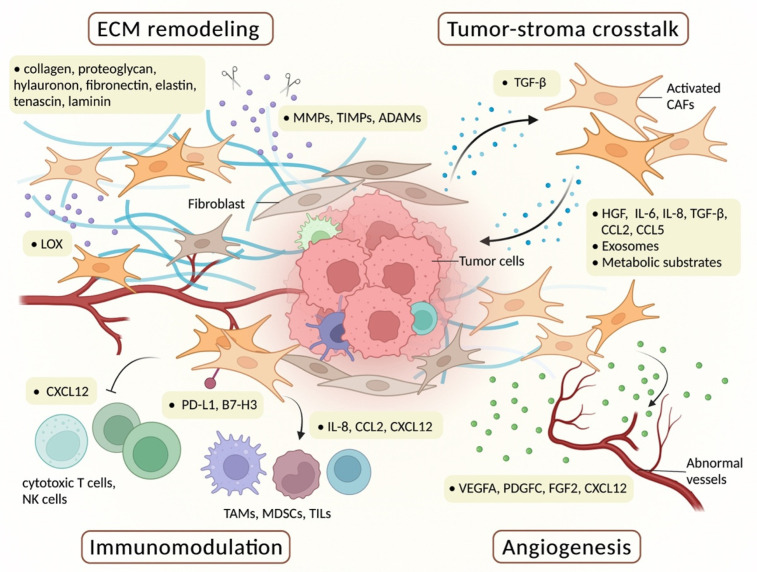Figure 2.
The multifaceted functions of CAFs (cancer-associated fibroblasts) in the TME (tumor microenvironment). Cancer cells can activate tumor-surrounding fibroblasts and other cells by TGF-β and other signaling pathways to become CAFs, which modulate the TME and promote cancer progression by four aspects: (1) CAFs controlling the abnormal and pro-metastasis ECM (extracellular matrix) remodeling by producing and crosslinking ECM components, and the ECM might be degraded by MMPs (matrix metalloproteases) and other enzymes. (2) CAFs interact with cancer parenchyma through multiple kinds of growth factors, cytokines, and chemokines, such as HGF, IL-6, IL-8, CCL2, and CCL5. CAFs also secret metabolic substrates to support tumor metabolism. CAFs also produce exosomes mainly containing miRNA to regulate tumor cells. (3) CAFs promote the abnormal angiogenesis of cancer by producing VEGFA, PDGFC, FGF-2, and CXCL12. (4) CAFs exert a modulatory role of the tumor-infiltrating immune cells, such as TAMs, MDSCs, TILs, cytotoxic T cells, and NK cells.

